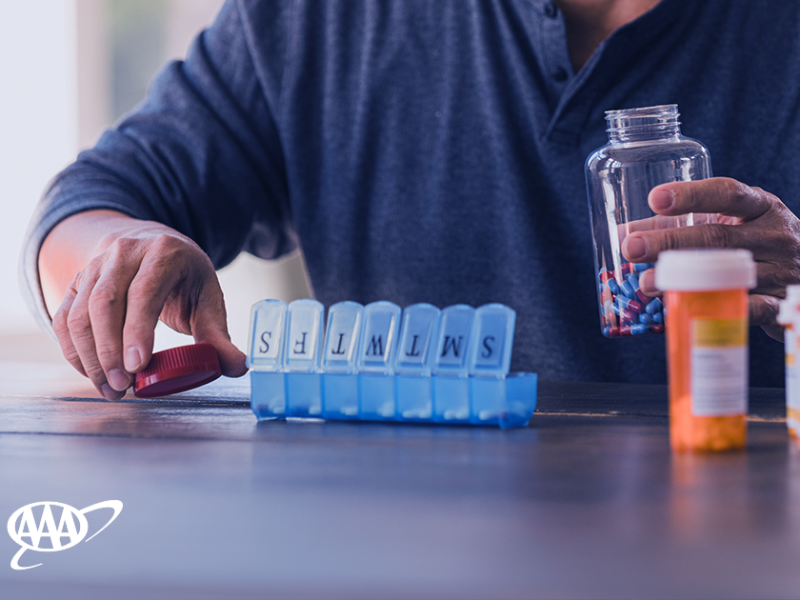A national survey conducted by AAA's Foundation for Traffic Safety found that many Americans admit to taking one or more potentially impairing medications before getting behind the wheel.
"A lot of folks don't seem to think about the medication that we may take daily," said AAA Georgia Spokeswoman Montrae Waiters. "Most pill bottles tell you that you should be mindful that this medication may impact your ability to drive, but most folks think, 'oh, I'm going to be ok.'"
The study looked into the use of so-called "potentially driver impairing" or PDI medications. These include antihistamines, cough medicines, antidepressants, prescription pain medicines, muscle relaxants, sleep aids and amphetamines.
Most PDIs can cause nausea, sleepiness, blurred vision, slowed reaction time and attention problems.
The analysis found that half (45%) of those who reported using one or more PDI medications admitted to driving within two hours of taking at least one.
While most people associate impaired driving with alcohol or illegal drugs, prescription medications can cause the same effects.
The real danger comes when taking a new medication because side effects present differently for everyone.
The study found that not all drivers are aware of the potential negative impact on their driving ability. 20% to 50% of those surveyed said their doctor never warned them, but those who were warned were 18% less likely to get behind the wheel.
"It's very important to make sure to have the conversation with your medical provider as to the effects of the prescription drugs and advocate for yourself," Waiters told AccessWDUN.
For drivers, AAA recommends these safety tips to keep in mind:
- Don't Underestimate the Risks of Driving after Using Medications—Driving under the influence of over-the-counter and prescription drug medications can affect your decision-making, making it unsafe to operate a vehicle.
- Be Responsible and Have a plan–Remember, just like driving after drinking, driving while under the influence of drugs can get you arrested. Instead of driving impaired, find a designated driver.
- Consider Your Options—With advice from your doctor or pharmacist, you can successfully treat your medical condition and maintain your ability to drive safely. Options include, but aren't limited to, timing your doses to avoid times when you need to drive, adjusting how much medication you take, or even exploring alternative medications that treat your symptoms without causing impairment.
- Advocate for Yourself—Become a better advocate for yourself during visits to the doctor, when filling a prescription at the pharmacy, or purchasing over-the-counter medications. AAA recommends that consumers be proactive by asking the doctor or pharmacist how the medications could affect driving ability and how to avoid those risks while treating their medical condition.
- Do your Research–If the medicine is available over-the-counter, read the warnings, heed them, or consult a pharmacist for advice.









